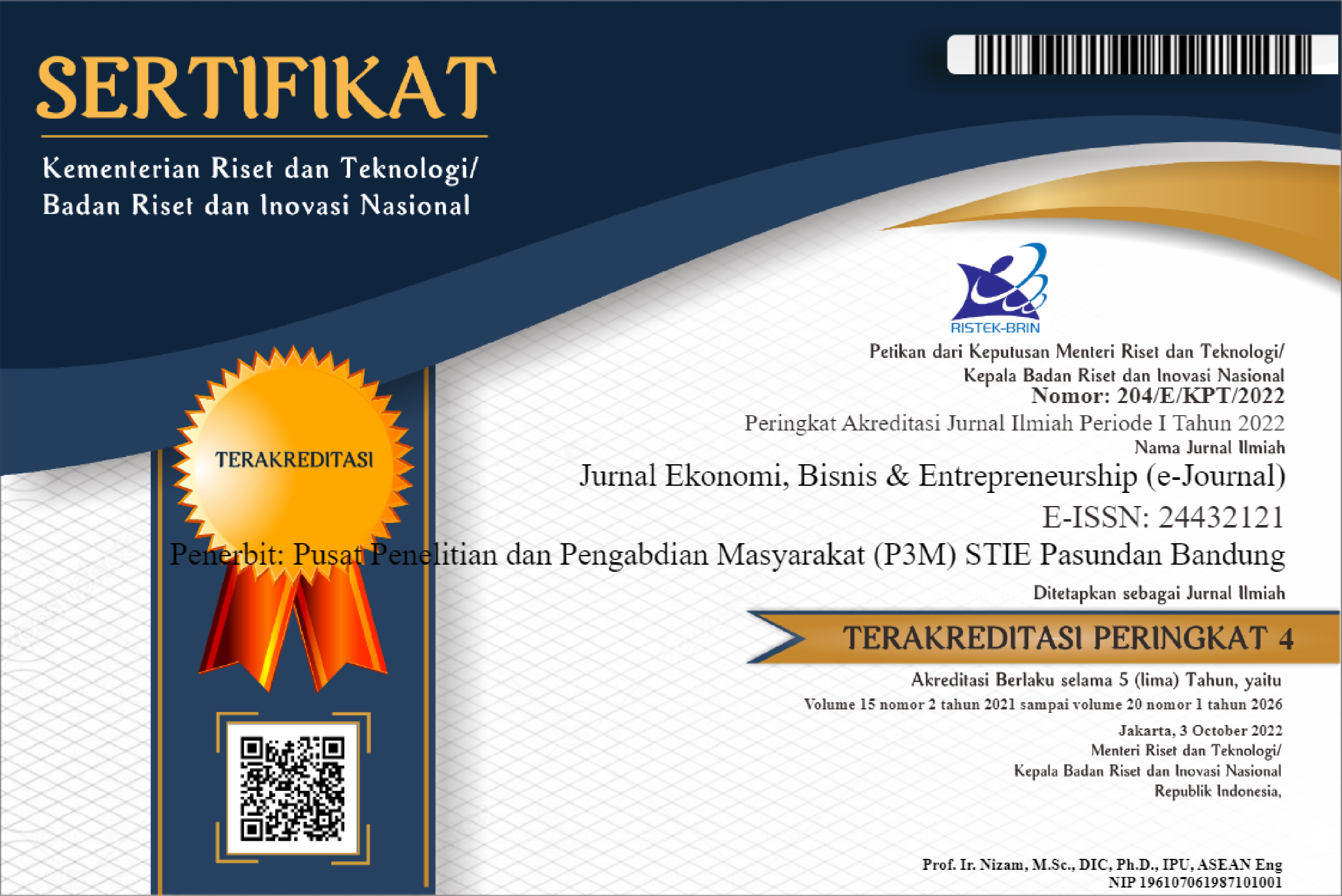Determinants of Financial Performance in Influencing Inclusivity of Sharia Pension Fund Participants in Indonesia
DOI:
https://doi.org/10.55208/jebe.v18i1.523Keywords:
Liability, ROI, RITA, Sharia Pension FundAbstract
Financial planning in old age is very important to do in order to prepare for the guarantee of life in old age. Sharia pension funds are a means that facilitate participants in meeting their needs in retirement. This study aims to provide empirical evidence related to the relationship between ROI, RITA, and Liability financial performance to the inclusion of Sharia pension fund participants in Indonesia. This type of research uses quantitative associative. The research data source uses secondary data from the publication of Sharia IKNB statistics on the Financial Services Authority website. The research sample was 17 quarterly data in the period 2019-2023. Research Object on Sharia Pension Fund companies in Indonesia. Data collection techniques through a literature study of journal articles and official websites indirectly supporting research literature. Data analysis using multiple linear regression. The results showed partially that Return on Investment (ROI) did not have a negative effect on Sharia Pension Fund Inclusion, Investment to Asset Ratio (RITA) had a positive effect on Sharia Pension Fund Inclusion, and Liabilities had a positive effect on Sharia Pension Fund Inclusion. Meanwhile, simultaneously independent variables (ROI, RITA, and Liability) significantly affect the positive effect of Sharia Pension Fund Inclusion in Indonesia.
Downloads
Downloads
Published
How to Cite
Issue
Section
License
Copyright (c) 2024 Muhammad Fatchullah El Islami Fatchul, Siti Eniyatul Uyun; Nur Diana Khalida

This work is licensed under a Creative Commons Attribution-NonCommercial-ShareAlike 4.0 International License.








